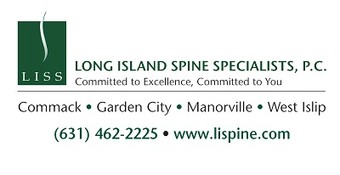|
|

|
« Back
My husband had a chest X-ray and discovered he has severe scoliosis. Evidently that's what's been causing his back and leg pain all these months. What's the best treatment for this in an older adult? Do they use bracing like with children?
|
|
Sometimes scoliosis in the older adult can be managed with nonoperative care such as physical therapy and medications. If the pain isn't severe or disabling, then conservative care is always advised. A three to six month course of treatment is encouraged.
Drugs such as nonsteroidal antiinflammatories or pain relievers can help with the painful symptoms. Therapy can improve motion, strength, and function. Addressing issues such as deconditioning can be very helpful. Bracing is not usually beneficial. It reduces movement and puts the patient at increased risk for osteoporosis and falls from loss of balance.
But failure to reduce pain, deformity, weakness, and bowel/bladder problems is an indication that surgery may be needed. The decision to have surgery should not be taken lightly. Complications from this type of surgery can be serious in this age group. Patients and surgeons talk together at length before taking this step.
Patients are advised that surgery can provide about a 50 per cent improvement. In other words, it's not a cure, and it doesn't result in a 100 per cent reduction of pain. There's no way to predict how much bowel or bladder function will improve (or if it will even improve at all).
Pain, neurologic symptoms, and the loss of function that occurs because of these problems are the most common reasons to pursue surgery. Patients who opt for surgery often have much greater disability. They are more likely to have severe back and/or leg pain, leg weakness, and loss of normal bowel and bladder function.
Older adults should be encouraged to try an adequate course of nonoperative care before considering surgery. All the pros and cons of surgery should be discussed. The patient makes the final decision, but the surgeon plays an important role in the counseling and management portion of treatment. It's a difficult and complex decision that must take many factors into consideration.
|
References:
|
|
|
« Back
|
|
|
|
*Disclaimer:*The information contained herein is compiled from a variety of sources. It may not be complete or timely. It does not cover all diseases, physical conditions, ailments or treatments. The information should NOT be used in place of visit with your healthcare provider, nor should you disregard the advice of your health care provider because of any information you read in this topic. |
 | All content provided by eORTHOPOD® is a registered trademark of Mosaic Medical Group, L.L.C.. Content is the sole property of Mosaic Medical Group, LLC and used herein by permission. |
|
